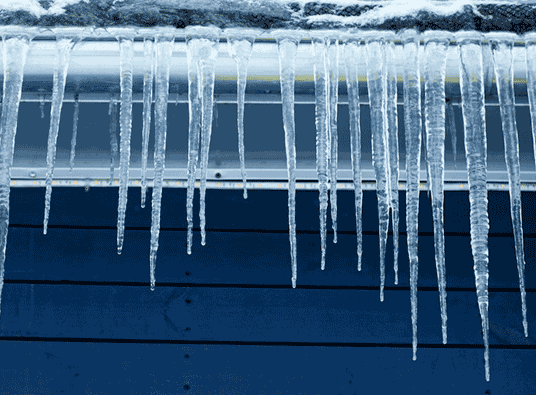Icicles hanging off a roof add a pretty wintry touch to a home
But icicles can be one symptom of a poorly-insulated attic space and/or an inadequate insulation along the attic floor. Ice damming will leave damaging effects on your home. Icicles are often indications of this larger problem. The consequences can wreak significant havoc with your roof.

How Ice Dams Form
Ice dams form along the edge of a roof when air leaks from the house into the attic. If there is too little insulation in the attic when snow blankets the roof, snow melts. If the eaves of the roof are cold enough to freeze the runoff, an ice dam may develop. In addition to roof and water damage, the end result of ice dams can be structural rot and the growth of mold and mildew inside the home.
How Icicles Form
The three conditions that form ice dams – snow, heat to melt the snow, and cold weather – are also necessary to form icicles. They may form as excess water runs over the edge of an ice dam, drips off the edge of the roof and refreezes. So icicles, especially large ones, could be a sign of an ice dam. But ice dams may be present when there are no icicles. They may also form due to overflowing gutters.
Get a Professional Inspection
Let us take a look at your roof and attic to determine if you have ice damming problems. With adequate insulation levels, no air leaks and a well-vented attic, your attic will stay cold enough to prevent ice dams. Call Muth & Company Roofing today at (614) 682-3060 for a FREE estimate on Columbus roof repair or Columbus roof replacement. We serve Columbus, Westerville, Delaware, Worthington, Dublin, Bexley, Gahanna, New Albany and many other surrounding Central Ohio cities.

